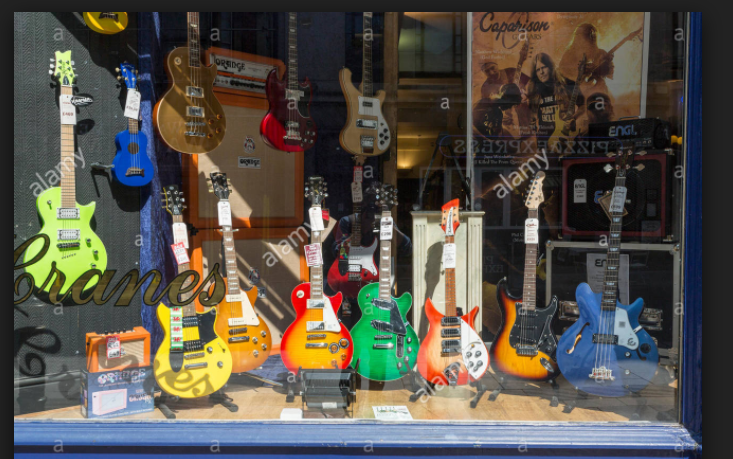Self Help For Partisans
 Friday, June 29, 2018 at 01:03PM
Friday, June 29, 2018 at 01:03PM
As a public space in which good faith civil democratic debate can take place, I think the United States is pretty much finished. As Cass Sunstein framed it in a recent column for Bloomberg, America is beset by what he calls “Political Manicheanism”, where “political issues are seen not as reasonable disputes among fellow citizens, but instead as pitting decent people with decent character against horrible people with horrible character.” Basically, it’s good versus evil, with each side seeing itself as the good guys.
We could probably have a good discussion about why this is the case. Does the steady march towards polarization go back to Reagan, or Nixon, or Kennedy? Is it the fault of Republicans, or of Democrats, or is the whole political system to blame? Is it third party financing? The media? And if it’s the media, is it Fox News, or CNN? Was it the FCC’s elimination of the Fairness Doctrine? Is it the because of the decline of mainstream media, or is it the internet - and is that just tomayto/tomahto? Is social media the real culprit, or fake news? Is it adherence to “balance” in journalism that drives the appetite for partisan media, or is it a bulwark against it?
And so on.
What is not really up for debate is the reality of the situation. Shortly after Trump got elected, I described American politics as “two troops of apes shrieking at one another across a great partisan divide.” That hasn’t changed, though the shrieking has got louder as the divide has got wider.
What has changed, though, is how the situation as evolved up here in Canada. We’ve long flattered ourselves that our politics is more civil than in the US, maybe because there’s less money involved, or because the stakes are lower, or our system is better, or our media are more concentrated, or just maybe because we’re all so much nicer.
But if the last few weeks of #cdnpoli Twitter are any sort of weathervane, Canadian politics is well down the same path as we’ve seen in America, perhaps irreversibly so. I’m not going to name names or describe incidents or exchanges -- if you’re paying the slightest attention, you know what I’m talking about. And arguing about who started it only underscores the problem: A line seems to have been crossed, where even the politicians and other actors who have seemed most committed to resisting the tug of Manicheanism have decided to go all in on painting their opponents not as basically decent people with different views on things, but as horrible people with horrible character. And again: I don’t think either side is blameless in all of this.
At some level, we all know that we’re entering a pretty dark place. And it is tempting to see correlation as causation and conclude that social media is a big part of the problem. (I think it is certainly part of the problem -- go read the first two thirds of Joe Heath’s Enlightenment 2.0 for the argument.) But we need to be wary of going full McLuhan on the situation, as Colin Horgan did on Twitter: The medium is the message, the message is garbage, so the fixing the medium will fix the problem. QED.
The problem with blaming the medium is it leads to hoping that if we only heckle the New York Times editorial page editors enough, or bully newspapers into calling Trump a liar in their headlines, or if enough of us complain to Jack Dorsey about Twitter bots or parody accounts, or we hold a mass prayer for Zuckerberg to be hit by a bus or for Facebook to be broken up by regulators -- then things will go back to the way they were.
But it’s not going to happen. This is the world we've built. It reflects who were are, our dispositions, our biases and our values. There’s no business model, regulation, or filter waiting to be discovered that is going to save us. As Craig Forcese wrote on Twitter, “The problem stems, not from the medium, but from ourselves.” And the ourselves who are most to blame for all of this are the partisans.
***
Look, some of my best friends are partisans. But there is something fundamentally wrong with the partisan brain. People -- smart, educated people -- who seem to have their feet firmly planted in the realm of reason and logic, cause and effect, inference and deduction, fairness and good judgment, suddenly lose their minds when faced with an issue over which there is partisan advantage to be had, or when a threat to their tribe’s hold on power looms.
And so in the interests of offering friendly but also urgently self-interested advice, here are three principles or guidelines partisans need follow that will help lead them back to Planet Sanity.
1. “What if my opponent did that?”
Shortly after the Liberals came to power in 2015, I had the idea of starting a blog called “What if Stephen Harper did that?”, which would simply link to something the Trudeau government did and ask the obvious question. Because despite riding to power on a wave of good intentions, in a lot of ways -- its control over Parliament, the lack of transparency and the abuse of process, the torquing of public policy initiatives for partisan advantage -- this government is no better than the one it replaced.
Of course, they don’t see it that way. No one ever does, because people tend to interpret their own behaviour in light of what they see as their true motives. And because they see their motives as fundamentally good, the Liberals give themselves a pass for engaging in the behaviours for which they crucified Stephen Harper.
But here’s the thing: Stephen Harper almost certainly interpreted his own behaviour in exactly the same way. He no doubt justified his own control freakery and partisan gamesmanship on the same grounds -- that it was in the service of the public interest. To respond that no, what Harper was doing was advancing partisan interests makes the fundamental partisan error: “what I do is in the public interest, what my opponent does is for partisan reasons.”
Looking at your own actions the way your opponent might see them is very difficult, but you have to try. What you see might surprise you.
2. The principle of charity
The requirement that you assume your political opponent has more or less the same goals that you have -- namely, making the world a better place - is just a specific form of a more general injunction, which is that you should always begin with the assumption that your opponents are rational. That is, you should assume that their beliefs are for the most part true, and that their beliefs and desires are connected to each other and to reality in some plausible way.
This is what philosophers call the “principle of charity.” It comes in various versions of varying strength, but the core of it is a demand that we interpret someone’s statements and behaviour in the most rational way possible. That is, we should avoid attributing irrationality, delusion, or bad faith to someone when a coherent or rational interpretation can be had. That doesn’t mean there are no irrational or deluded people, nor does it mean that no one ever acts in bad faith. But as Joe Heath puts it in Enlightenment 2.0, “If our understanding of the world depends crucially upon the claim that everyone else is an idiot, evil, on the take, or part of the conspiracy, then the problem almost certainly lies with our understanding and not with the world.”
In short, before calling your opponent insane, a lunatic, a criminal, or a total moron, check to make sure you are giving the best possible interpretation of those views that maximizes their status as rational people.
Applying the principle of charity is a good way of doing this. But an even better approach is to try to pass the ideological turing Test.
3. The ideological Turing Test
You remember the original Turing Test, in which Alan Turing proposed to replace the ineffable question “can machines think?” with the behavioural question of whether a machine could interact with a human in a way that was indistinguishable from human to human interaction. As Turing saw it, if a human couldn’t tell the difference, then there was no further question as to whether the machine was actually thinking.
The ideological Turing Test is the brainchild of the economist Bryan Caplan, and it is designed as a test to see whether a partisan truly understands the arguments of his or her opponent. The idea is that the partisan (say, a Liberal) is asked to answer questions or write an essay in which they are posing as their ideological opponent (say, a Conservative). If a neutral judge can’t tell the difference between the arguments of a true Conservative and those of the Liberal trying to “pass” as a Conservative, then we can conclude that the Liberal does genuinely comprehend the Conservative point of view.
How many Liberals out there think they could seriously pass as Conservatives, and vice versa? It’s not an idle question. Because if you can’t credibly represent your opponent’s views, this means a few things. First, you probably don’t understand those views. Second, this means you can’t have a proper argument with them. Which means you are probably not taking their ideas seriously, which means, finally, that what you’re doing on is not debating them, or arguing, but performing.
***
And maybe that’s the big problem -- that everyone has stopped arguing with their opponents, and has decided to simply perform for their supporters.
Bagehot famously wrote:
Of all modes of enforcing moderation on a party, the best is to contrive that the members of that party shall be intrinsically moderate, careful, and almost shrinking men; and the next best to contrive, that the leaders of the party, who have protested most in its behalf, shall be placed in the closest contact with the actual world. Our English system contains both contrivances: it makes party government permanent and possible in the sole way in which it can be so, by making it mild.
Once upon a time Parliament may have been composed of moderate, careful, and shrinking men and women. But that is no longer the case. Moreover, it would appear that whatever contact our representatives have with the actual world, it is not making them moderate and mild in their interactions with one another.
As Bagehot saw, party government in a parliamentary system must be mild if it is to be possible at all. And if our representatives can’t see their way to helping themselves out of their partisan echo chambers, if they can’t see their way back, to treating one another as rational interlocutors acting in good faith, then we are well and truly screwed.
 parliament,
parliament,  partisans,
partisans,  reason in
reason in  politics
politics 



